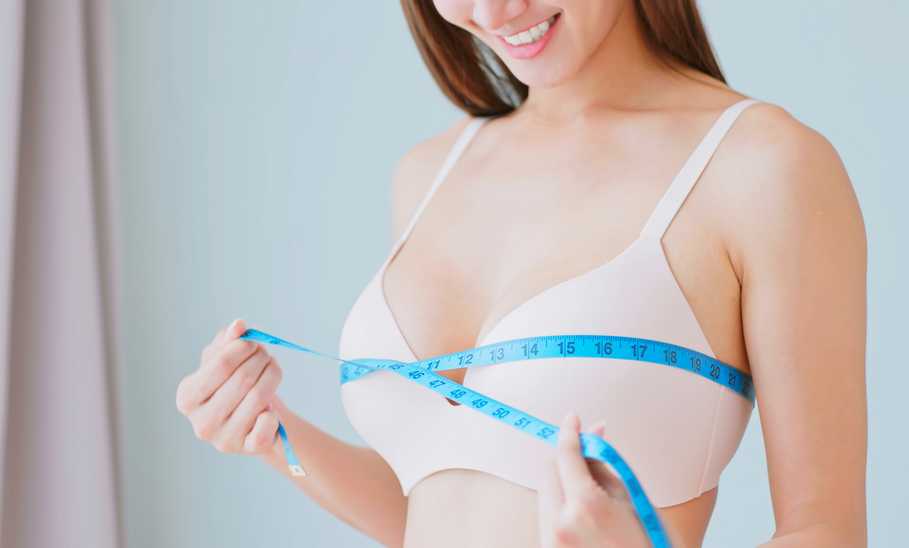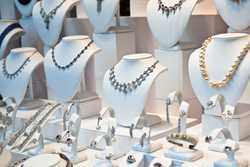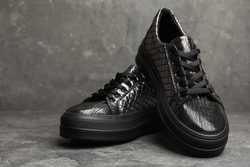How to Measure Bra Size, According to Bra Experts

Our evaluations and opinions are not influenced by our advertising relationships, but we may earn a commission from our partners’ links. This content is created by TIME Stamped, under TIME’s direction and produced in accordance with TIME’s editorial guidelines and overseen by TIME’s editorial staff. Learn more about it.
If you’ve ever wondered how a bra should fit, a refresher may likely be needed on how to measure bra size. It’s nothing to feel embarrassed or ashamed about — I didn’t properly know how to measure my bra size until a couple of years ago. And ever since then, my bra-wearing experience has been life-changing.
I chatted with Kimmay Caldwell, undergarment educator at HurrayKimmay.com, and Jené Luciani Sena, bra expert and bestselling author of The Bra Book, to learn more about how you can measure your bra size yourself and know what factors you should be keeping in mind to ensure proper fit.
A soft measuring tape is needed to determine your bra band size. “Place the soft measuring tape directly under the bust at the root while keeping it [the tape] parallel to the floor from directly under the bust toward the back and around the torso,” explains Caldwell. “Then, take a deep breath in and out to allow the tape to hug snugly around the torso before rounding to the nearest inch.”
When measuring your bust, Caldwell advises keeping the tape parallel to the floor while hugging it against the fullest point of your chest without digging before measuring to the nearest inch — make sure you’re wearing a bra during this step.
To determine your cup size, you have to subtract your band size from your bust size. Once you calculate the difference, you can figure out your cup size as every inch (difference) equates to one cup size in traditional United States bra sizing, notes Caldwell.
Just because you take the measurements needed to know your bra size, it is important to try on a couple of bras to ensure that size does fit in case you made any calculation mistakes and because different bras from different brands fit differently and vice versa. If you discover your bra does not show the physical signs of proper fit, we recommend re-measuring and trying on a different set of bras until a comfortable fit is reached.
As we mentioned above, your bra must fit properly. Here are some components our experts recommend keeping an eye out for when ensuring a proper fit:
If you’re a visual learner or simply would like more clarification on bra sizes, Caldwell created this bra size chart you can refer to when shopping whether you’re looking for bras for large breasts, minimizer bras, sports bras, or any other kind of bra with a band and cups.
Finding the perfect fitting bra may not be the easiest process, but it’s worth the effort for the optimal level of support and comfort your breasts and chest will receive once you do. Although finding the perfect-fitting bra can be done by yourself utilizing online resources, research, and trial and error of different brands, seeking professional guidance from a bra expert or fitter can help, too.
Bra sizes can often be converted into sister sizes. I touch on this more in the next section.
According to Luciani Sena, “Bra sizing can be complicated because it does involve some math and an understanding that bra sizing is based on overall volume as the two numbers work together in conjunction with one another.”
Furthermore, she notes that there are sister sizes if you find the band or cup size is too big or too small and the other part works. “For example, if you are a 34C, you can also likely wear a 36B because you can go up in the band and down in the cup and it’s the same size bra!”, explains Luciani Sena.
You know your cup size by subtracting your band size from your bust size and taking the difference (in inches) to convert it into the proper cup size, as every inch equates to a cup size in the United States.
You’ll know whether you’re an A, B, or C cup after taking your measurements (of which process is described above). If the difference between your band and bust size is one inch, you’re an A cup. If the difference between your band and bust size is two inches, you’re a B cup. And, if the difference between your band and bust size is three inches, you’re a C cup.
Although knowing your bra size without a measuring tape is more difficult, it’s not impossible. If you don’t have a measuring tape accessible, Luciani Sena advises using your last known bra size (that you secured with a measuring tape) as a guideline and going from there (assuming that your weight and body shape have generally remained the same) to try on different bras until one feels right. Caldwell notes that fit is a big factor that comes into play when figuring out your bra size without a measuring tape, as everyone is different, and it takes practice to know your own body and what feels most comfortable for you.
The information presented here is created by TIME Stamped and overseen by TIME editorial staff. To learn more, see our About Us page.



